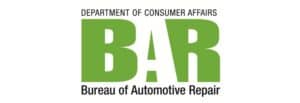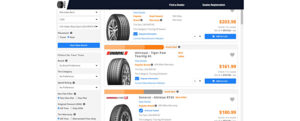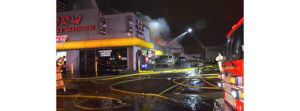Here’s a brief summary of some of the key measures relevant to the repair industry that will take effect in the new year
Sacramento, Calif.—Every year, hundreds of new laws are enacted that impact California automotive repair dealers. Below is a brief summary compiled by the California Autobody Association of some of the key measures, in no particular order, that take effect January 1, 2022, unless otherwise noted.
• Minimum Wage Increase. Reminder that effective January 1, 2022, the minimum wage for employers with 26 or more employees will increase to $15.00 per hour. The minimum wage for employers with 25 or fewer employees will increase to $14.00. (SB 3 of 2017). Please note that local minimum wage ordinances may be higher.
• Lead Acid Battery Fee Increase. Beginning April 2022, the current $1.00 California battery fee imposed on a person who purchases a replacement lead-acid battery from a retail dealer (including auto repair dealer) will increase to $2.00. (AB 142 of 2019)
• BAR Auto Shop Locator Program Enhancement. Automotive repair dealers will now be able to provide BAR with educational certification credentials that are nationally recognized and industry-accepted (e.g. ASE, I-CAR, OEM certification) or approved by BAR. These certificates will be posted on BAR website and will be part of the Auto Shop Locator program to help consumers easily identify those shops that have training and certification credentials. (AB 471)
• Independent Panel to Review BAR Citation/Fine Appeals. This new law will require BAR to create and independent three-member panel consisting of a representative from the BAR, the public and the automotive repair industry to hear all appeals from any citation and fines issued by the BAR. (AB 471)
• Remedial Training Process for BAR Citations. This new law will require BAR to establish a process for an auto repair shop, upon successful completion of remedial training, to prevent disclosure of the citation and fine on the internet and require BAR to establish a program to certify providers of training. (AB 471)
• Lien Authority for Storage Fees. This new law clarifies that BAR has authority to oversee and regulate disputes involving automotive repair dealers and consumers regarding charging of reasonable storage rates. (AB 471)
• Vehicle Safety Inspection Program. This new law will combine the current brake and lamp program and create a new Vehicle Safety Inspection program for rebuilt salvage vehicles. (AB 471)
• Hazardous Waste. This law establishes a new regulatory board within the Department of Toxics Substances Control (DTSC), increases charges that support hazardous waste management, restructures and increases the tax that supports DTSC and provides funding to support brownfield cleanups and investigations across the state. (SB 158)
• Vehicle Road Usage Charge. This new law extends the Road Usage Charge Technical Advisory Committee until January 1, 2027 and requires the state Transportation Agency to implement a pilot program to test a road usage charge. (SB 339)
• Automobile Dismantling. This new law re-establishes the Vehicle Dismantling Industry Strike Team and increases enforcement and fines for unlicensed vehicle dismantling. (SB3 66)
• Failure to Pay Employees is a Crime. This new bill makes it a crime (grand theft) to intentionally fail to pay employee wages, if the wages equal more than $950 for one employee or $2,350 for two or more employees in any consecutive 12-month time frame.(AB 1003)
• Employers notification requirements after COVID-19 exposure clarification. This new law further clarifies employer obligations to its employees regarding COVID-19 related to benefits, disinfection and safety information after potential exposure to COVID-19 exposure. (AB 654)
• Cal-OSHA Violations and Fines. The new law expands Cal-OSHA’s enforcement powers, creates new categories of workplace health and safety violations and authorizes Cal-OSHA to issue citations and place additional fines for “egregious” violations. (SB 606)
• Expansion of the California Family Rights Act. This new law amends the California Family Rights Act (CFRA) to include parents-in-law to the list of family members for which an employee can take leave under the CFRA. (AB 1033)
• Employers Need to Retain Personnel Records Longer. The new law extends the current personnel records retention requirement from two years to four. If litigation has been filed, employers must retain such records longer. (SB 807)
• Settlement Agreements – Silenced No More Act. Broadly prohibits public and private employers of any size from settling lawsuits using agreements that prevent disclosure of sexual assault, sexual harassment, workplace harassment and discrimination based on anyprotected status under the Fair Employment and Housing Act. (SB 331)
• Wage and Hour Penalties. Allows the Labor Commissioner to place a lien on real property to recover penalties owed for violations of the labor code. (SB 572)
• Electronic Delivery Workplace Notices. This law provides that whenever an employer is required to physically post information meant to apprise employees of rights it “may also distribute that information to employees by email”. The law merely allowsemployers to provide required notices via email and does not negate employers’ obligations to post physical copies of such notices in workplaces. (SB 657)
Note: This summary has been provided for informational purposes only and is not intended and should not be construed to constitute legal advice.







Comments are closed.